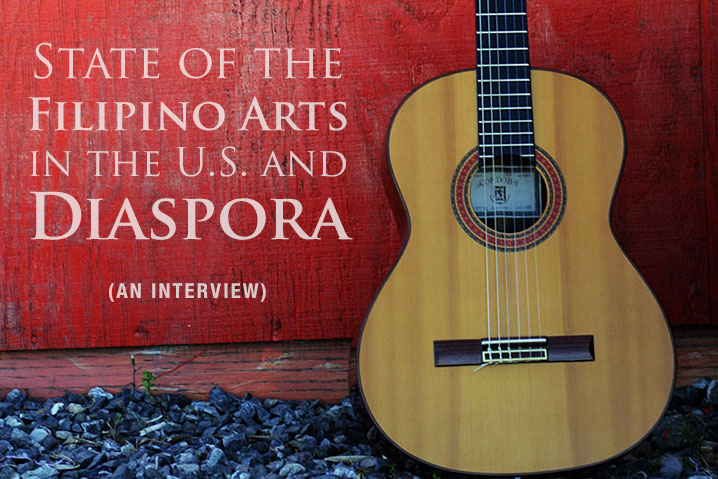The following post appears as part of an article on Dialogue on Philippine Dance and Culture event in San Francisco, and published by Inquirer.net. The interview was conducted by Wilfred Galila and is presented in its complete unedited version.
WG: How do you feel about being recognized as one of the outstanding artistic leaders who have significantly contributed and influenced Philippine dance and culture in the U.S. and the diaspora?
FA: I am, of course, honored. To be honest, most of the time I was merely following some very strong artistic itch that needed to be scratched. But I am honored just the same.
WG: Considering that you could have practiced any musical style or form, was the practice and craft of Filipino music a particular choice, other than the fact that you are Filipino? Has it always been that way when you first started or was there a switch in your artistic path along the way?
FA: I definitely did not set out to be playing Filipino music as my artistic calling. In fact, when I was growing up in the Philippines, I viewed traditional Filipino music as lowly and not meriting the attention of any serious musician. I was training to be a classical musician, performing works by European composers on the recital platform. I came to the US to study with the best of the best in that pursuit.
But many things had to happen and converge along the way. Having studied music at the conservatory, as well as traveled the world investigating music of other cultures, gave me a new perspective on Filipino music. That it is not lowly, that it is beautiful and traditionally rich. That my chosen instrument – the classical guitar lends itself so naturally as its delivery agent. But probably the most powerful catalyst was when my father died and I had to go back home. That’s when I truly rediscovered how much the music I grew up with was now resonating in a very deep way. That I am now in a unique position to present traditional Filipino music in a different light, in my own personal way.
WG: What is your opinion about the state of Philippine dance and culture here in the U.S. and the diaspora?
FA: Generally speaking, I think that Filipino immigrants bring a very unique perspective. Whereas Fil-Ams tend to have issues of identity growing up and assimilating in the US, first time immigrants like myself came to the US with our identities fully formed, and always the outsider looking in.
We bring with us first hand knowledge of the culture. Now that we are outside of the Philippines, it actually gives us a better appreciation of its beauty and traditions in a different filter. And here in the US, you have all the resources, tools and support to perfect your vision. And yes I am implying that you would not get this level of support and resources if we’re living in the Philippines. I mean that is the reason we all left the country, the reason for the country’s ongoing brain drain, sadly. So, I am saying that Filipino artists are doing some very interesting and progressive things in the US in a way that our Philippine counterparts cannot. The Philippine arts in the US and diaspora is thriving and in good hands.
WG: As an artistic leader and champion of Filipino music, how do you envision the future of Philippine arts and culture in the diaspora? And what are the steps to realize this vision?
FA: The Philipine culture is a jar full of inspiration that can be infinitely tapped. But you can’t do it from an armchair. If one truly were to champion Philipine arts, you have to have either grown up there or significantly visited the motherland in order to bring the knowledge. I can’t emphasize enough the importance of firsthand knowledge in order to bring traditional art in a respectful light. You can’t be deriving your art based on someone else’s interpretation. It has to come from you.
WG: Any advise on aspiring Filipino artists on being and creating, for them to be able to get to where you are now with your art?
FA: I think that being true to yourself as an artist is important. Don’t make choices based on what you think will please people. If you feel different about something, embrace that difference. If you think no one’s going to care about what your vision is, do it anyway. If you think there is no market for it, do it anyway. The important thing is that it is coming from an honest place deep within you. If you end up being recognized for it, that is secondary, even tertiary. The important thing is that you followed and executed a unique vision that only you could have.
